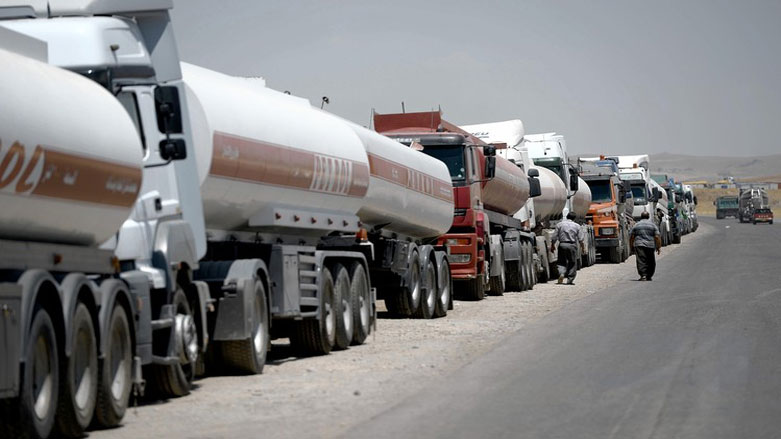Kirkuk to prevent Baghdad-Iran oil tankers transfer

ERBIL, Kurdistan Region (Kurdistan24) – The Governor of Kirkuk Province pointed out on Thursday that he will not allow the federal government of Iraq to ship Kirkuk’s oil to Iran via tankers because they have to pay extra fees for polluting the environment.
In a statement submitted to media, Najmaddin Karim, the Governor of Kirkuk Province stated that Baghdad government owes Kirkuk large sums of petrodollar. He hoped that Baghdad would honor its commitments to Kirkuk.
“They [Iraqi federal government] want to send Kirkuk oil to Iran through tankers, not pipelines,” Karim continued. “We won’t let tankers take Kirkuk oil to Iran.”
He mentioned that if oil companies that want to send oil via tankers to Iran, they should be giving extra fees for polluting Kirkuk air and negatively affecting roads.
Karim stated that they will not allow a single oil tanker to transfer Kirkuk oil to Iran without heeding conditions determined by Kirkuk Province.
The federal government and the Kurdistan Regional Government (KRG) have been locked in dispute since the beginning of 2014 after the KRG started to sell its oil independently. In March, North Oil Co. in Kirkuk ran by the federal government stopped using its only export oil route through the Kurdistan Region to Turkey.
On August 22, the Oil Ministry of Iraq ordered the restoration of the export through North Oil Co.
“We’re still waiting for an agreement on the details regarding who should receive the oil revenues,” Deputy Oil Minister Fayyad Al-Nima told Bloomberg on Wednesday.
Kirkuk is an oil-rich province located in the south of the Kurdistan Region and north of Iraq. It is a diverse province with different ethnic and religious background, including Kurds, Turkmen, Arabs and Christians. Kurds make up the majority of the population.
Editing by Ava Homa
(Additionally reported by Hemin Dallo from Kirkuk Province)
